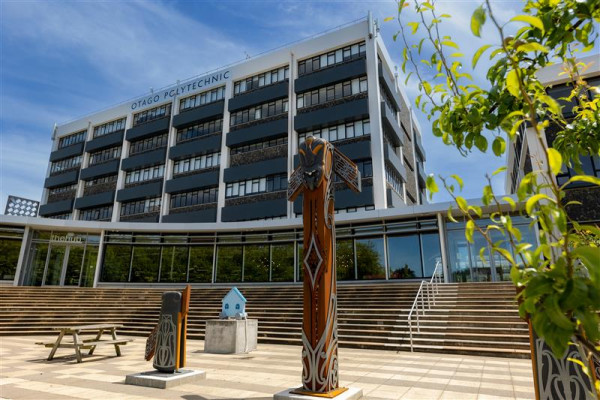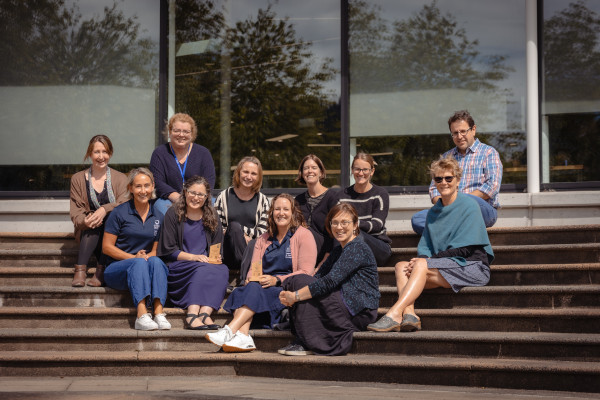- Tūhono home Hoki ki Tūhono
-
- Staff Directory
- Chief Executive Office Auckland International Office Corporate Services Finance Campus Services Functions and Catering Information Systems and Support Marketing, Communications and Engagement Learner Journey Academic Registry International Learner Services Te Punaka Ōwheo
- Learner Experience Academic Excellence Central Campus College of Community Development and Personal Wellbeing College of Engineering, Construction and Living Sciences College of Health College of Work Based Learning Open Education Resource/OERu Research and Postgraduate Studies Te Maru Pumanawa | College of Creative Practice and Enterprise
- Māori Development and Kaitohutohu Office People, Culture & Safety People and Culture Childcare Centre Te Ama Ako | Learning and Teaching Development Wellbeing and Safety Auckland Staff Directory Executive Office Academic Corporate Services Marketing and Business Development Human Resources Campus Quality and Programme Development
-
 Our people make a better world
Our people make a better world
We build the capabilities of individuals, organisations and communities and help them to realise their potential.
Staff Directory
-
- Tools
- Academic Integrity Declaration Form AIC applications dashboard Approved programmes Approved programme fees Centralised assessement repository Chemwatch Course evaluation and surveys CRM applications CRM customer service hub Delegations policy/process Disability and neurodiversity Dynamics 365 (CRM) EBS Ontrack EBS Report Email security personal portal Employment Matters / Solarworkplace / Performance reviews eTaxi eTV
- Financial variance reporting Hidden Disabilities Sunflower programme FCM travel intranet InPlace International entry requirements Knowledgebase articles Learner support dashboards Linkedin Learning Log a job with Marketing Login as an applicant Media consent form Microsoft 365 Moderation App Moodle OP Docs OP Docs - Publishing OP Image Libraries Performance Excellence Portal Pocket Lab (student healthcare) Product Evaluation Panel
- Policy Library Privacy Programme and course design/development Qualtrics XM RDS Remote access support portal Research Database Robertson Library Staff FAQs about graduation Status of Programmes Student intranet (Kāpehu) Study Abroad info for learners Taha Talks (videos for students) Tūhauora I Wellbeing resources Uniprint Vault Webexpenses Auckland tools
-
 Vault
Had an accident or near miss?
Log it here
Vault
Had an accident or near miss?
Log it here
-
- Communities
- Community AI Steering Committee Ally Network EBS Community of Interest EdTech Champions Health & Wellbeing Research Internal Evaluation Neurodiversity Professional Team Professoriate Proud@OP Student Support Website Advisory Group Web Champions Working under the Rainbow Project Learner Capability Trade Training Centre
- Committee Academic Committee Animals@OP Diversity and Equity Doctor of Professional Practice Committee Kaunihera Whakahaere - Leadership Council Internal Evaluation Learning & Teaching Leadership Team Library Committee Mental Health and Wellbeing Advisory Group Otago Polytechnic Board of Directors Pastoral Care Code Committee Programme Approvals Committee Research and Postgraduate Committee Research Ethics Committee Staff Subcommittee
- Think Tanks Mātauraka Our learners achieve educational success Pūtea Our financial success Tākata Our people, our team, our community Tiriti Our active commitment as a Treaty partner Tūroa Our commitment to be a sustainable and responsive organisation
-
 Create a community
Create a community
Do you have a community, committee or project that you'd like represented here?
Communities
-
- About OP
- Keep up to date All news All events All notices All blogs Share your info Create a news article Create an event Create a notice Create a blog
- Community and Partnerships Alumni and friends Education Foundation Operational information Academic calendar 2025 Academic calendar 2026 Current vacancies Dunedin campus map Our policies Topical FAQs
- Who we are About OP Commemorative sites Māori Strategic Framework OP merchandise Our history Our strategic priorities Pasifika Action Plan Pasifika Strategic Framework (2025-2030) Vision and Values Working for us OP job opportunities Wellbeing Calendar Working at OP
-
New Zealand: 0800 762 786
contact us
International: +64 3 477 3014
Occupational therapists in Aotearoa responding to community need
Author: Grace Hannah
Supervisors: Jackie Herkt
Hannah, G. (2023). Occupational therapists in Aotearoa responding to community need. (Unpublished document submitted in partial fulfilment of the requirements for the degree of Master of Occupational Therapy). Otago Polytechnic | Te Pūkenga, New Zealand. https://doi.org/10.34074/thes.6311
Abstract
Within occupational therapy, there is an increasing focus on integrating healthcare and community development practices to address issues of marginalisation and social injustice. Occupational therapists recognise their potential contribution to areas of community practice, utilising their occupational perspective to address contextual barriers facing communities, and enhancing opportunities for occupational engagement.
The primary aim of this research was to explore how Aotearoa-based occupational therapists respond to the occupational needs of communities and integrate their occupational perspective while working alongside communities. Utilising an interpretive descriptive methodology, interviews were carried out with five participants from a range of locations and communities throughout Aotearoa. Participants were asked to reflect on how their professional background informed the ways they work alongside their respective communities, factors that supported and challenged their practice, and their hopes for the future of community practices.
Participating therapists described working with a diverse range of communities, but uniformly identified the ‘doing’ perspective as the unique contribution they made as occupational therapists working in these roles. Participants emphasised how the occupational perspective grounded their professional identity, and enabled them to identify and respond to the different occupational needs present within their communities.
The findings revealed that therapists practising in community-responsive roles undergo a process of ‘being,’ ‘becoming,’ and ‘belonging.’ These roles challenge established ideas of what it means to ‘be’ an occupational therapist, and present a range of supports and challenges while ‘becoming’ a therapist who works with communities. Additionally, therapists must navigate where they ‘belong’ within the occupational therapy profession and broader social context.
This research has demonstrated how occupational therapists apply their ‘doing’ perspective to empower communities and increase opportunities for participation. It has also shown that validation and support from the occupational therapy profession are essential for these therapists to feel confident and enthusiastic about their unique contributions with Aotearoa communities. Recommendations from this research include raising awareness of community practices, engaging in critical reflection on underlying discourses informing occupational therapy practice and professional identity, and promotion of cultural safety and recognition of te ao Māori. It is hoped that these recommendations will support the development of community-responsive roles within Aotearoa.
Keywords
occupational therapy, community, responsiveness, emerging, community development
Licence
A copy of the thesis is publicly available under a Creative Commons Attribution Non-Commercial No Derivatives licence CC BY-NC-ND 4.0 International
![]()